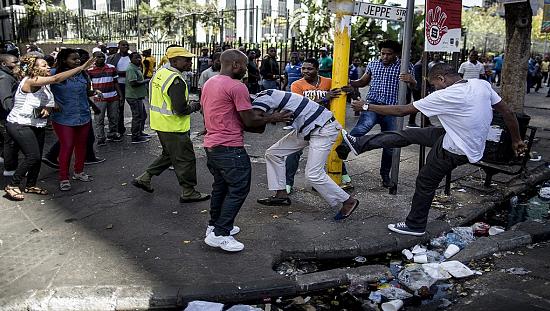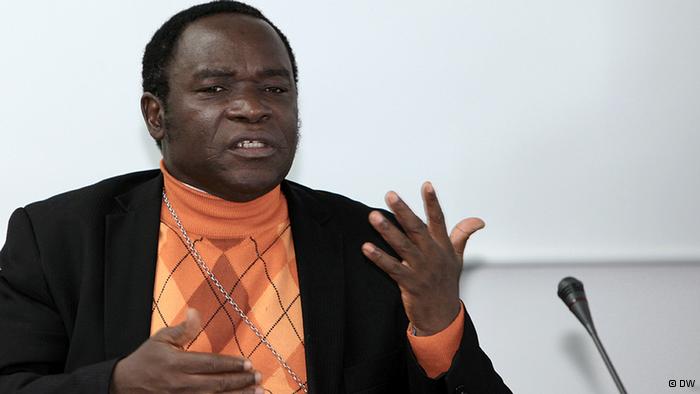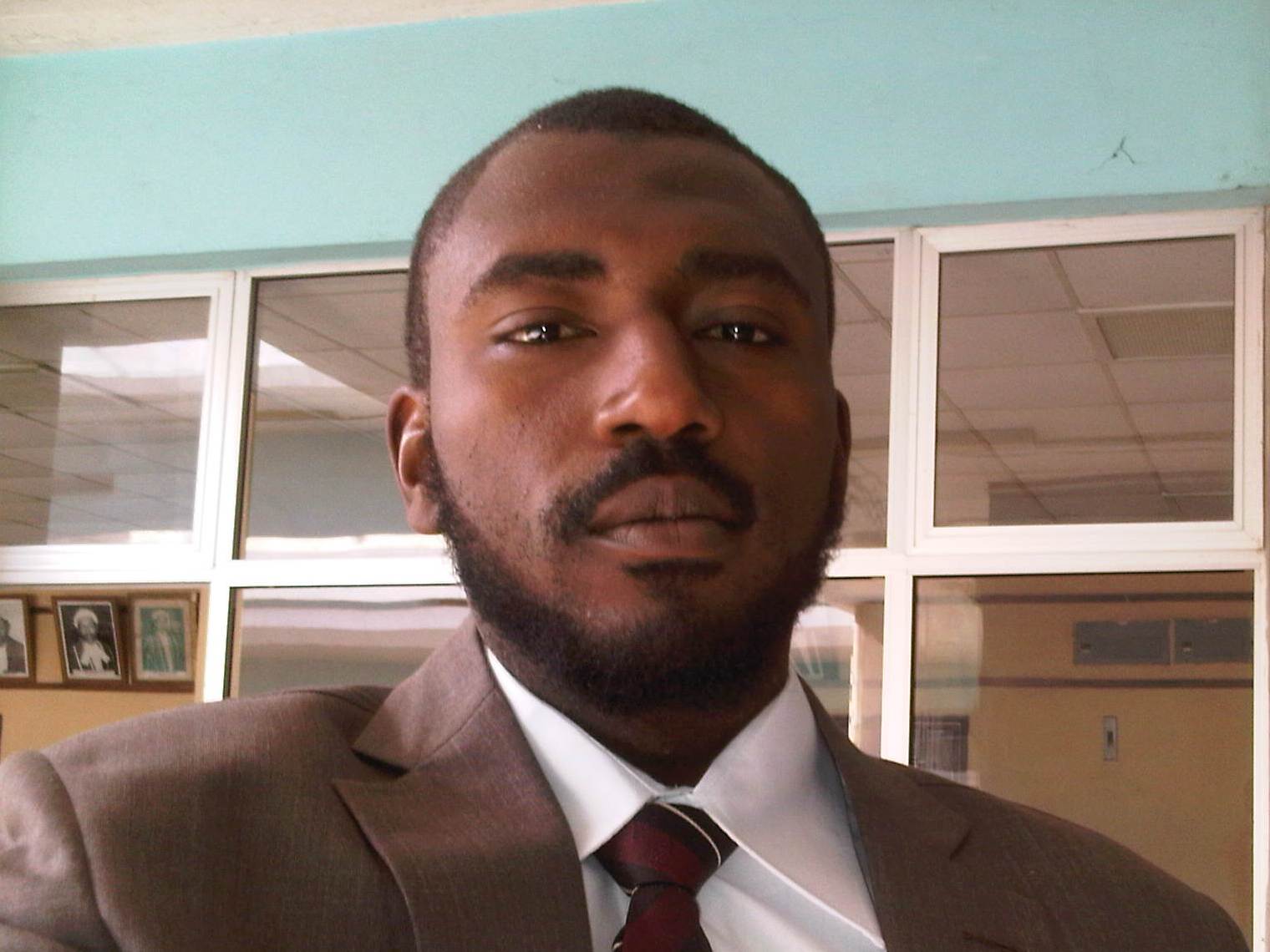We celebrated too early. Because this year’s polls ended well, we assumed that we had shamed the “prophets of doom” – those who prophesied 10 years ago that Nigeria would break up in 2015. How wrong we have been!
The elections no doubt provided the perfect gunpowder needed for the country to explode. Had the most popular presidential candidate been cheated, as he was in previous years, Goodluck Jonathan could have been the last man to rule a united Nigeria. I was almost sure about that. It was for fear of the PDP’s abracadabra and the likely fallout that many of us took steps to protect ourselves just before the polls.
Yet, the danger of disintegration still looms large. Or has Nigeria been united by the elections? Not when the rich and the poor are still poles apart. Not when fuel scarcity has persisted and power supply has plummeted. Not when state and federal governments have been lamenting a heavy debt overhang and their inability to pay salaries. Not when Boko Haram insurgents have intensified their attacks on innocent civilians in the north-east and Niger Delta militants want the amnesty programme forever.
We have been rejoicing over the coming of a new government, not knowing that those working to break Nigeria still have other agendas. We may have been acting foolishly like Shakespeare’s Julius Caesar: When a soothsayer warned Caesar to beware the Ides of March, he dismissed the soothsayer as a dreamer. On the fateful day, Caesar, apparently mocking the soothsayer, reminded him that the Ides of March had come. Yes, Caesar, but not gone, the soothsayer replied. Caesar was eventually murdered on that day. So, 2015 is not gone. It’s not even half-gone yet.
The greatest danger facing the country, and which may lead to its breakup, is the economy. Three or four months ago, I stated that the nation’s economy was primed to collapse this year or next. And the ousted regime worked hard to get the job done. It’s not an accident that most states and the federal government have been borrowing to pay salaries. Some states including Lagos and oil-rich Delta reportedly owe over N250billion each. The federal government puts its debt at $60billion (or N12trillion) but more informed sources have told me it’s a big lie and that the debt could be in the region of $200billion (N45trillion). In no distant time, the debts are likely to balloon further and the creditors would start calling. Can the nation stand if the few that work are not paid for six months? Over 100 million Nigerians are now unemployed or underemployed. How much longer can they cope? Poverty and hopelessness now live in the hearts and minds of at least 90 per cent of the Nigerian population.
I see international conspiracy in it all. It has been proved beyond reasonable doubts that politics of oil in the Chad Basin is the reason for Boko Haram’s emergence. Multinational oil companies also indicated that they were against the Petroleum Industry Bill (PIB) and even boasted they would work to ensure it doesn’t see the light of day. Today, that bill is dead. Militancy may resume in the Niger Delta and disrupt the country’s oil production again.
Meanwhile, the other group (MASSOB), though not violent like Boko Haram, has been strengthened by the cooperation of Asari Dokubo’s Niger Delta group. I read recently that MASSOB has been invited to present its case (for an independent Biafra) before the United Nations this Wednesday. Anyone still doubting the lack of unity among Nigerians should read the hate comments spewed every minute in the social media. The country may not survive a little more push.
In the midst of this uncertainty, Amnesty International (AI) and the United Nations are not waving the olive branch. Last Tuesday, AI presented a report that indicts Nigerian military chiefs for human rights abuses or war crimes in the war on terror. What is the report meant to achieve at this time? On Friday, the UN rights chief, Zeid Ra’ad Al Hussein, toed the same line: he criticised the Nigerian military and asked President Buhari to punish offenders. Were these people really concerned about the plights of civilians in the north-east? Attention seems to be shifting from ISIS in Syria to Boko Haram in Nigeria with special interest in human rights abuses. Perhaps, Boko Haram terrorists that have murdered up to 20, 000 innocents and displaced over 2million people are heroes that have respected animal rights.
Nigeria may not disintegrate in 2015. It may still remain one at the end of 2020. But it would be bad for it to break up even in 2115, for disintegration is not the solution to our problems.
To avert a disaster, it’s up to our current leaders to enthrone justice and peace while working to rebuild a shattered economy. Unfortunately, a hungry man is an angry man; he wouldn’t listen to any gospel until he fills his stomach. So? Let the reforms start from there –the stomach.
Waiting for 8th NASS Leaders
The contest for positions in the 8th National Assembly seems to be ending on a happy note for almost everyone this week. In view of the criteria listed by the ruling APC last Tuesday, it’s obvious that the party supports Senator Ahmad Lawan from a minority tribe in Yobe State to become the next Senate president. Senator George Akume from Benue State has already queued behind Lawan even as he seeks to be deputy Senate president. Let’s hope Senator David Mark and his party meant what they said about not fielding a candidate.
The only opponent of Lawan left (barring a last-minute joker from PDP senators) is Senator Bukola Saraki from Kwara State. He should now support cohesiveness in his party and eschew acrimony by stepping down for Lawan. In return for such magnanimity, he should be elected majority leader, a position his father had occupied in the Second Republic.
The same spirit of compromise should be allowed in the House of Representatives. My view is that the position of speaker should go to the south-east or south-south: since Imo State has been able to produce three APC reps, one of them deserves to be the next speaker. The Nigerian federation was founded on a tripod: North, East and West. That’s why there would have been no contest for Senate president if the south-east had produced even one APC senator. The question of experience should not arise: all reps are equal and “experienced” reps have not been too different from inexperienced ones so far. It’s not enough to allocate the post of secretary to government of the federation (SGF) to someone from the south-east – he will be just like any other minister.
I wish all elected lawmakers good luck as President Buhari convenes the 8th NASS this Tuesday. I hope they (unlike the 7th NASS) won’t wait until their last sitting day to pass 46 bills that had spent four years in the NASS.
— By ANIEBO NWAMU













